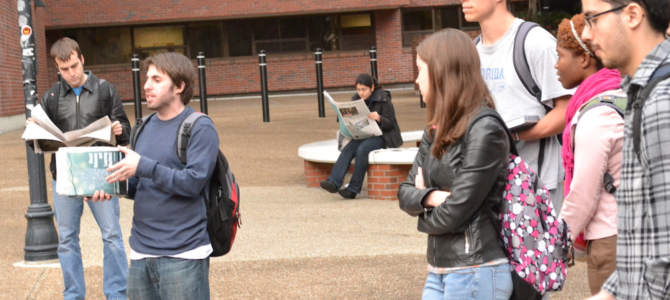“You break it, you buy it.” We’re all familiar with the rationale behind this rule. You are responsible for the harm you inflict on someone else, and you must make it right.
A grocery store might not strictly enforce this rule. But the more precious the merchandise, the more it applies. Breaking a jelly jar might be overlooked, but not shattering an expensive crystal vase or destroying a priceless antique. Why? You harmed someone, and you must make things right. Merely promising to be more careful next time won’t put the vase or antique back together again.
The same rule applies to government officials. When they violate our priceless, God-given, blood-bought freedoms, they should be held to account. They should not be allowed to dust off their hands, promise to do better next time, and walk away as though nothing happened.
But this is exactly what federal courts in Georgia have permitted. That is why my colleagues and I at Alliance Defending Freedom are asking the Supreme Court to intervene, and why everyone from atheists to Jews, and Muslims to Catholics are supporting us in that request.
In 2016, a student at the public Georgia Gwinnett College, Chike Uzuegbunam, was standing outside on campus, handing out literature and sharing his Christian beliefs, when an administrator stopped him. Without realizing it, he had been standing outside the two microscopic “speech zones” where the college allowed free expression.
Open only about 10 percent of the week, the zones comprised one patio and one sidewalk — 0.0015 percent of campus. To speak their views at all other times or places, students had to obtain a permit. Even to use the zones, students were required to submit a form and any leaflets in advance, and four officials would then decide, with no criteria to guide them, whether to allow it.
Undeterred, Uzuegbunam went through this approval process and began speaking in one of the speech zones. But within minutes, campus security stopped him yet again. Apparently, someone complained about Uzuegbunam sharing the plan of salvation that Christians have taught openly for the past 2,000 years.
College officials said this was “disorderly conduct,” which they defined as any expression that “disturbs the peace and/or comfort of person(s).” So someone else’s discomfort equals no speech for you. Got it?
As a result, Uzuegbunam was unable to speak about his faith anywhere on campus. Without a permit, he was banned from speaking in the more than 99.99 percent of campus outside the speech zones and any time in the almost 90 percent of the week they were closed. Even with a permit in the zones, he could say only things that didn’t make anyone uncomfortable, an impossible task that is incompatible with the First Amendment.
By silencing him not once but twice, the college sent a clear message to Uzuegbunam and other students: Shut up. One of them, Joseph Bradford, felt he had no other choice but to do just that.
With the help of the ADF Center for Academic Freedom, Uzuegbunam and Bradford filed suit, challenging these policies, which clearly violate the First Amendment. After all, the only permit a student needs to speak freely on campus is the First Amendment. That doesn’t change when someone complains or takes offense.
Trying to end the lawsuit, Georgia Gwinnett changed its policies. But it refused to do anything to address the way it repeatedly violated Uzuegbunam and Bradford’s constitutional rights. More troubling, two federal courts have let these officials off scot-free, saying that since the college changed its policies and Uzuegbunam has graduated, the officials are entitled to a free pass.
This is wrong. Yes, Uzuegbunam graduated, but college officials still violated his rights. Changing policies may help future students, but it does nothing to right the wrongs — censorship and intimidation — that Uzuegbunam and Bradford suffered. Violating their rights, even for a short time, is a grave injustice, even if it does not cause monetary damages. Courts exist to force the government to respect our liberties and publicly own up to its misconduct.
Uzuegbunam and other students have heard a message loud and clear from college officials: “Don’t bother defending your freedom; we know how to game the legal system.” And up until now, the courts have allowed them to evade responsibility for their actions.
The rule that applies to us — “you break it, you buy it” — should also apply to the government. It shouldn’t get a free pass for violating our freedoms. Even one violation is too many.









